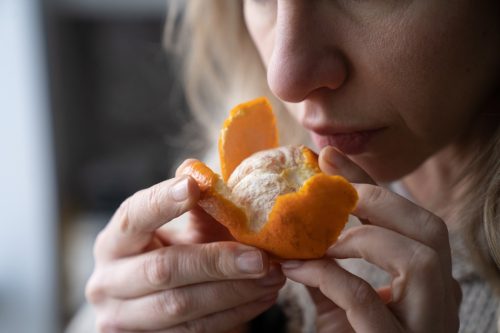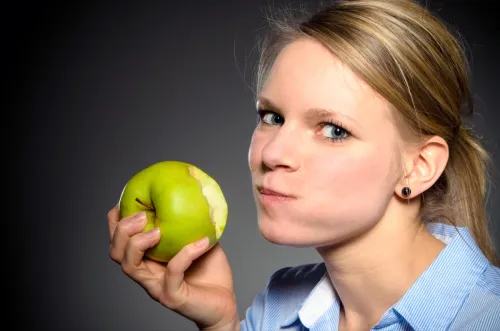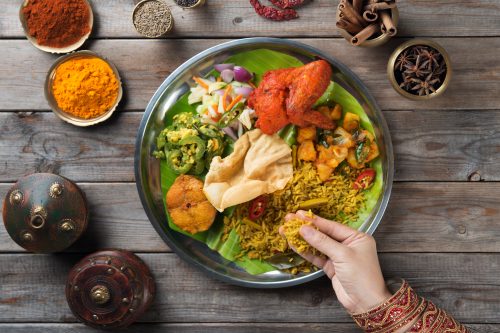Chewing Like This is the “Best Way to Eat,” According to Science. Here’s Why.
"We've been doing it all wrong."

Take small, careful bites. Never eat with your mouth open. What if everything your parents taught you about chewing your food was wrong? That’s the suggestion of a British scientist, who says there’s an ideal way to eat—and it flies in the face of conventional wisdom learned in childhood. “We’ve been doing it all wrong,” Charles Spence, an experimental-psychology professor at Oxford, recently told the Daily Mail. “Parents instill manners in their children, extolling the virtues of politely chewing with our mouths closed. However, chewing open-mouthed may actually help to release more of the volatile organic compounds, contributing to our sense of smell and the overall perception.” Read on to see exactly how to eat and why.

Volatile organic compounds are chemicals. Some of them are synthetic and harmful (such as those contained in some paints), and some are natural. The VOCs that occur naturally in foods—such as esters, ketones, terpenoids and aldehydes—create aroma and contribute to foods’ flavor. They’re processed by sensory neurons in the nose, which communicate to the brain and can heighten the eating experience.

“When it comes to sound, we like noisy foods—think crunchy, crispy,” said Spence, a spokesperson for Pink Lady apple growers in the UK. “Both chips and apples are rated as more pleasurable when the sound of the crunch is amplified. To best hear the crunch of an apple, a potato crisp, a carrot stick, a cracker, crispbread or a handful of popcorn, we should always ditch our manners and chew with our mouths open.”

In another development that will horrify traditional parents, Spence says that eating with your hands as much as possible is an excellent idea because it can optimize the eating experience. “Our sense of touch is also vital in our perception of food on the palate,” said Spence. “Feeling the smooth, organic texture of the skin of an apple in our hand before biting into it whole is likely to contribute to a heightened appreciation of the juicy, sweet, crunch of that first bite.

“This can be extended to the feeling of grains of salt sticking to the fingers when eating French fries with our hands or the sugary residue of buttercream on a hand after picking up and biting into a slice of birthday cake,” he added. “While licking fingers after eating with our hands is never encouraged in polite circles, research would suggest we ought to consider scrapping the etiquette for utmost sensory enjoyment. Or consider only how pleasant it can be to lick the bowl with your finger when making a cake mix at home.”

Spence’s advocacy of open-mouthed eating will likely not be greeted enthusiastically by people with misophonia—a condition in which people are excessively bothered by the sounds of chewing. The condition, which literally means “hatred of sound,” is one “in which individuals experience intense anger and disgust when they are confronted with sounds made by other human beings,” explained scientists behind a 2019 study published in Scientific Reports. “In particular, sounds like chewing, lip smacking or breathing may cause intense anger and physical arousal.” It affects about 15% of people, the Misophonia Institute says.














